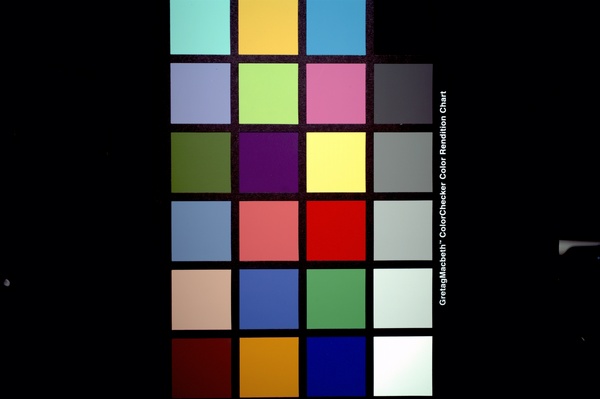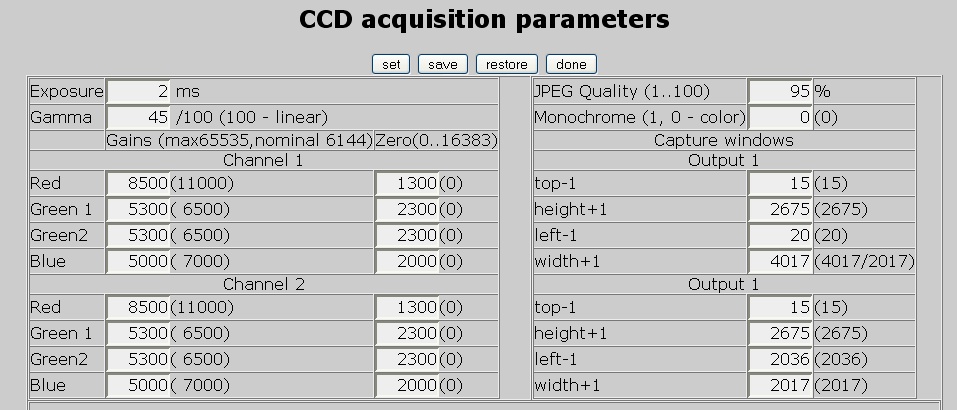Flash Illumination with the 323
Using the 323 with Flash Illumination -- Suggested settings
I photographed a GretagMacbeth Color Rendition Chart with a 323 camera equipped with a Kodak KAI-11000CM Grade 2 color microlens CCD. The lens was a 60mm MicroNikkor, set at its wide open aperture of f/2.8. Illumination was from a single Elinchrom 600S set to about 25 watt-seconds, equipped with a 14x20" Chimira softbox with both diffusing panels in place. With the target in a vertcal plane and the camera aligned on the center normal, the bottom of the softbox was positioned about 6" above the back of the 323, angled down at the target. The CCD to target distance was about 0.8m. The soft box to target was about 0.95m along the center to center beeline.
This image is reasonably close numerically (+- 5% typical) to the RGB specifications for the target, and subjectively looks very good.

The chart is rotated to avoid the huge horizontal QE falloff of the CCD.
With a Minolta IVF light meter in non-corded mode, the (incident) illumination reads f/2.8 at ISO 32.
Screenshot of the main parameters page:

This camera uses a test version of software that allows capture to be triggered by pulling CTS1 low on the master compressor. This pin is available on the power supply header connector. The flash is triggered via Pocket Wizard, whose Port 1 input is paralleled to CTS1. Both inputs float at 3.3v. The exposure period must be set long at 2 mS because the Pocket Wizard radio link takes about 1 mS. (When both camera and flash are radio triggered, a 1 mS exposure syncs reliably as long as the CCD analog supplies are already active, and no sync delay is needed--astounding.)
From this example, it appears that if you can nail the exposure, you'll get good photos. Until higher resolution raw data becomes available (preferably in Adobe DNG format), this is a good workaround.
...by BernardC